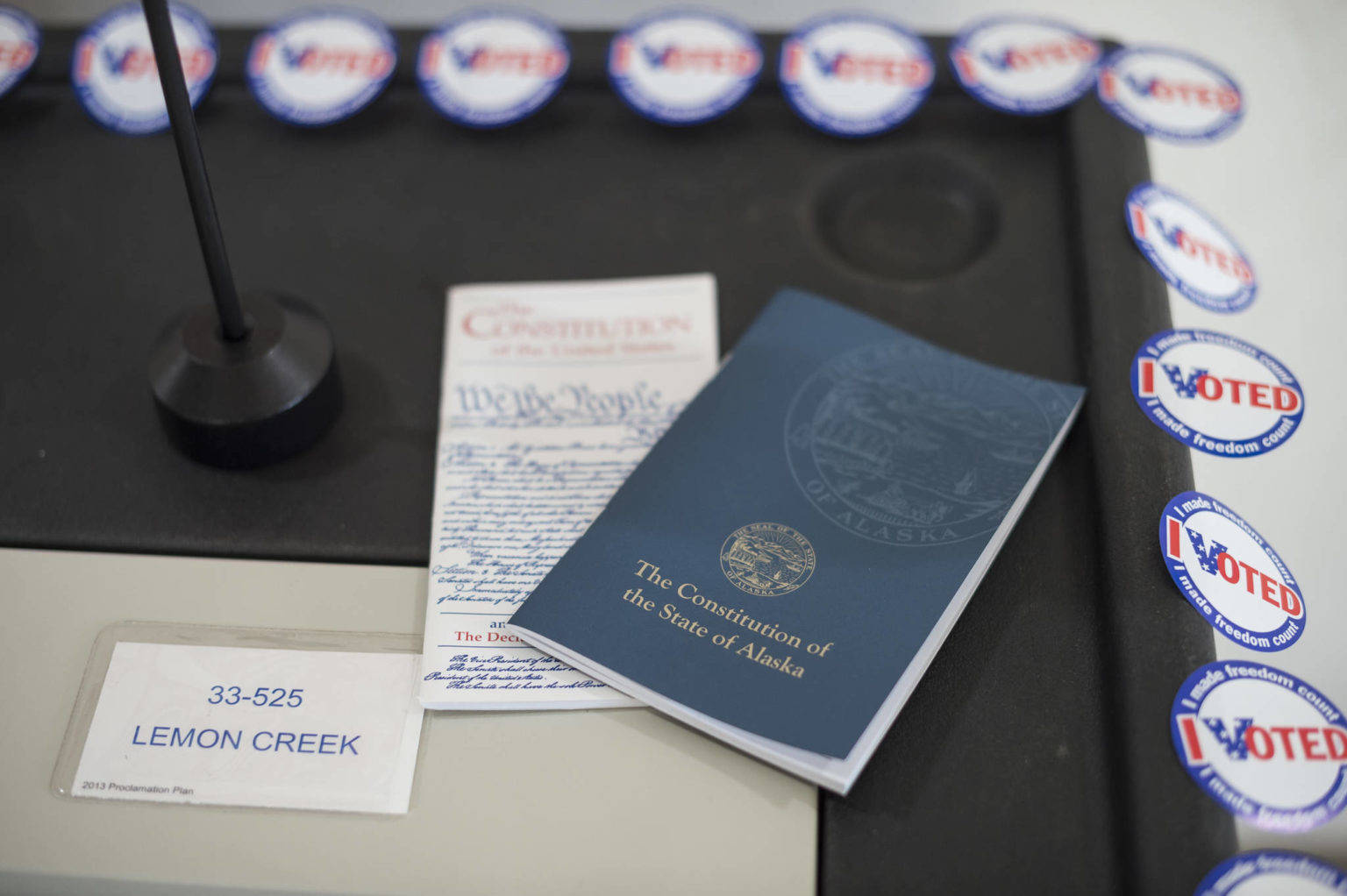State and local governments are weighing the use of mail-in ballots as the COVID-19 pandemic continues and election season nears.
Given health concerns posed by the pandemic, some governments plan to rely heavily if not entirely on voting by mail for their elections. The City and Borough of Juneau announced last month its October municipal election will be conducted by mail with help from the Municipality of Anchorage, which held its own mail-in election in April.
The Division of Elections announced Thursday every registered voter over the age of 65 would receive an absentee ballot application prior to the primary elections in August. In order to vote-by-mail in Alaska, voters must submit an application to register as absentees at least 10 days before Election Day.
Because of its size, people have been voting by mail in Alaska for decades, said Rep. Jonathan Kreiss-Tomkins, D-Sitka, who suggested absentee applications be sent to every Alaska voter, not just those over 65. Alaska is also a “no excuse” absentee voting state, according to DOE, which means voters don’t have to give a reason for requesting an absentee ballot.
“Were the Lieutenant Governor to do this, you’d get an application and you could throw it in the garbage,” he said Tuesday in a phone interview, referring to Lt. Gov. Kevin Meyer’s role as head of DOE.
But Kreiss-Tomkins said Alaskans should be given the option and that a good number would take advantage of the vote-by-mail option.
[Not mailing it in: State’s plan is for primary to proceed as usual with modifications]
Voting by mail has received a lot of attention nationally as governments try to avoid large groups of people in close quarters, but the idea has drawn criticism from President Donald Trump and other Republicans who question its security.
That’s a non-issue, Kreiss-Tomkins said.
“The state of Alaska has been doing absentee ballots probably since statehood,” he said. “If this suddenly becomes a concern now, I would wonder why it hasn’t come up in the last half-century.”
Asked about security concerns, DOE Director Gail Fenumiai said in an email Alaska’s election process at the state level, including absentee ballots, are secure and regularly reviewed to follow best practices.
“Alaska has extensive procedures in multi-layered security model, which it is continuously improving as technology and better practices are known,” Fenumiai said. “A secure system has multi-layers of protection so that if one fails others are still in place.”
Paper ballots are kept as back-ups for all votes cast, Fenumiai said, and scanners are used in 306 of the state’s 441 precincts while the remainder are hand-counted. The state works with multiple agencies “on security enhancement projects which include tools to share secure information, monitor active attacks on our site and fortifying our security with elements of dual-factor authentication,” she said.
At a May 15, press conference, Meyer said DOE would conduct the state’s August primary in the traditional manner, and said the state offers alternatives to voting in-person including absentee ballots.
“Alaskan voters are welcome, as they have always been, to utilize absentee voting to vote by mail, early voting up to two weeks prior to Election Day, or traditional in-person voting on Election Day,” Meyer said.
In an email, spokesperson for Gov. Mike Dunleavy Lauren Giliam also pointed to the state’s alternative voting options as already existing ways for Alaskans to vote by mail.
An announcement has not yet been made regarding the general election in November. Meyer said in May that he expected November would work the same way August will.
• Contact reporter Peter Segall at psegall@juneauempire.com. Follow him on Twitter at @SegallJnoEmpire.

